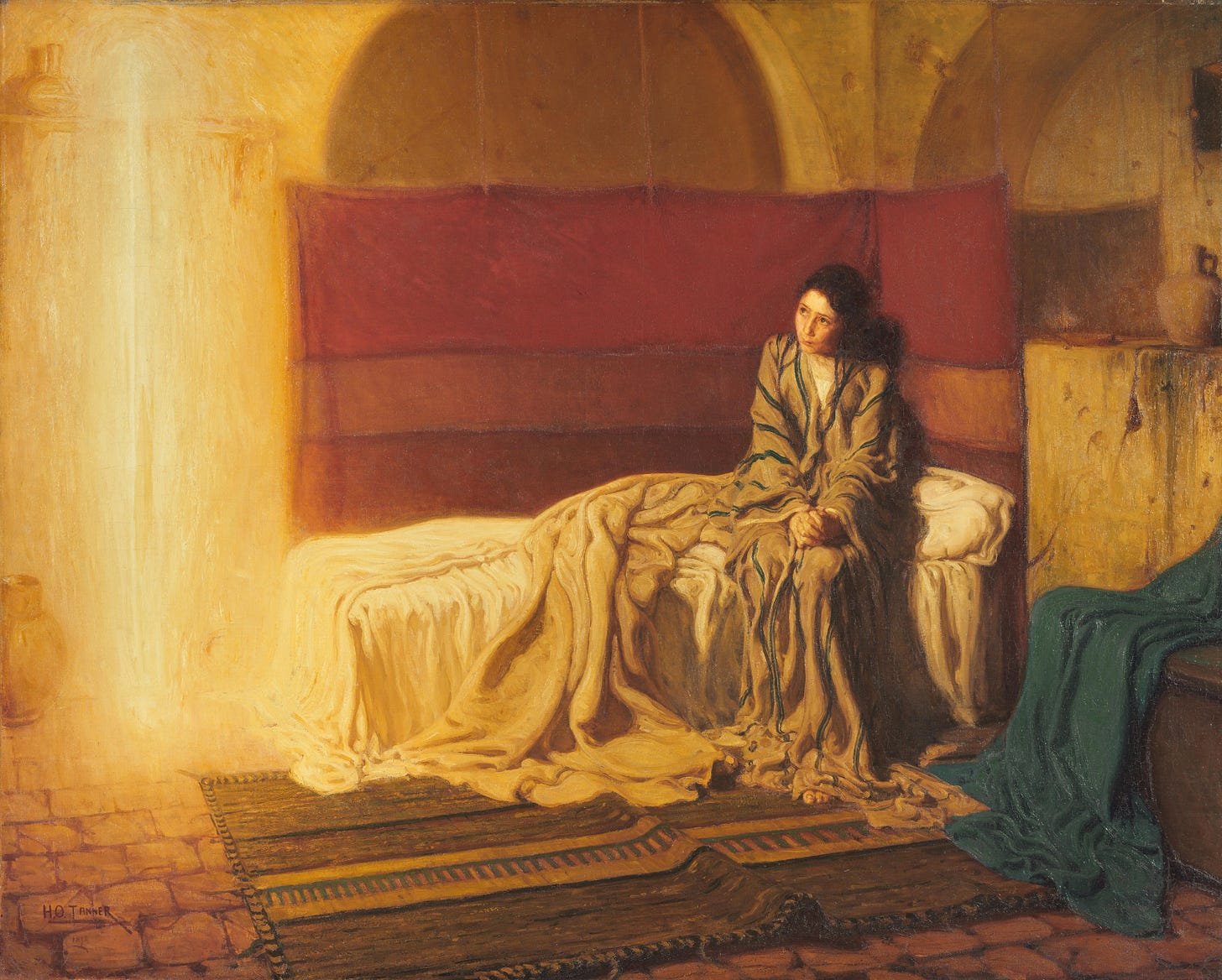A miraculous conception
Christmas with Charnock Day 1

Welcome to the first in a series of reflections from Stephen Charnock on the incarnation. As a way of expressing my gratitude for the support people have shown me as I have set out on my PhD, I’m sending out a short excerpt each morning up to and including Christmas Day.
Charnock begins his meditations on the incarnation with an explanation of Jesus’ conception in the womb of Mary. He writes,
He was conceived by the Holy Ghost in the womb of the virgin: Luke 1:35, ‘The Holy Ghost shall come upon thee, and the power of the Highest shall overshadow thee;’ which act is expressed to be the effect of the infinite power of God, and it expresses the supernatural manner of the forming the humanity of our Saviour…
Although only a few lines in, Charnock is careful to say what was not happening inside of Mary. He clarifies that the verse he just quoted from Luke’s account
signifies not the divine nature of Christ issuing itself into the womb of the virgin; for the angel refers it to the manner of the operation of the Holy Ghost in the producing the human nature of Christ, and not to the nature assuming that humanity into union with itself.
You might think that Charnock is being a bit picky here. However, as he will show us in the coming days, there is a lot at stake when it comes to how we understand the relationship between Christ’s divinity and his humanity. For now, all we need to notice is that Charnock is keen to emphasise that it was only Christ’s human nature, and not his divine nature, that was conceived in Mary’s womb. As he put it,
The Holy Ghost, or the third person in the Trinity, overshadowed the virgin, and by a creative act framed the humanity of Christ, and united it to the divinity.
Revelation road trip
It’s at this point that Charnock encourages us to briefly step away from first-century Bethlehem and cast our minds back to the Bible’s earliest chapters. Comparing the Holy Spirit’s work in the incarnation with his activity in creation, and then the Exodus, Charnock explains that it is
expressed by a word of the same import with that used Genesis 1:2, ‘The Spirit moved upon the face of the waters;’ which signifies (as it were) a brooding upon the chaos, shadowing it with his wings, as hens sit upon their eggs to form and hatch them into animals; or else it is an allusion to the cloud which covered the tent of the congregation, when the glory of the Lord filled the tabernacle, Exodus 40:34.
Charnock is eager to point out that the Spirit’s work in Mary was not a creation in the sense of bringing something out nothing. Rather, it was more a case of God forming what was in her naturally. He continues,
The matter of the body was earthy, the substance of the virgin; the forming of it was heavenly, the Holy Ghost working upon that matter. And therefore when it is said, Matthew 1:18, that ‘she was found with child of the Holy Ghost,’ it is to be understood of the efficacy [or work] of the Holy Ghost, not of the substance of the Holy Ghost.
Sacred baby scan
Charnock’s analysis of what exactly what was going on in Mary’s womb that first Christmas might cause us to feel slightly uncomfortable. We might have a vague sense that it is somehow inappropriate. After all, very few people are allowed into a mother and father’s antenatal scan. And, thinking about it, I’ve never heard preachers go into this much detail in their Christmas sermons either!
That having been said, if all goes well with their appointment, the parents of an unborn child are normally most excited to share the highlights with family and friends, often with photos in hand. In the Bible we find something similar. God, the divine parent, has chosen to reveal how his incarnate son was conceived. And, as Charnock points out, one of the highlights was that
The matter was natural, but the manner of conceiving was in a supernatural way, above the methods of nature.
Oh, what wonder! What mystery! What glory there is in the birth of our saviour!
Look out tomorrow for what Charnock says next . . .


Thanks for these reflections. I have hardback copies of Charnock's 2 volumes on the existence and attributes of God. I always wonder what it would have been like to sit under the ministry of Charnock and Watson as co-pastors.
Thanks for the post James. I’ve never thought in depth about the incarnation so this is very interesting.